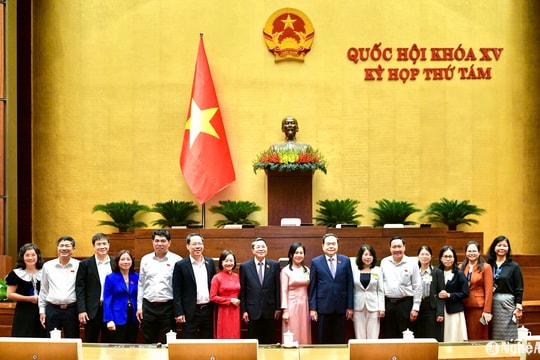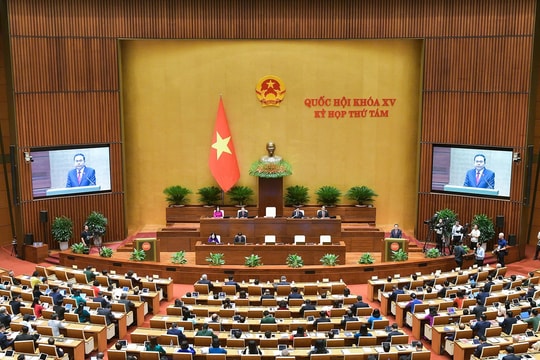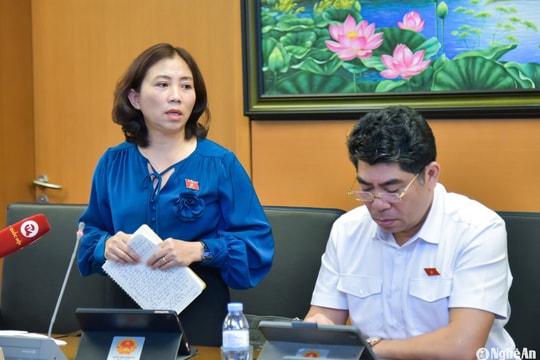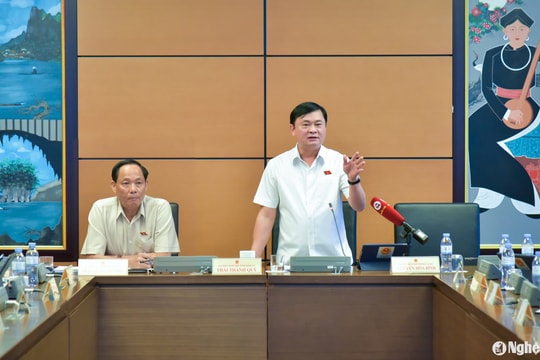National Assembly delegates from Nghe An province give their opinions on the proposal to tax small-value imported goods via e-commerce platforms.
On the morning of October 29, the 8th Session of the 15th National Assembly discussed in the hall a number of contents with different opinions in the draft Law on Value Added Tax (amended). Vice Chairman of the National Assembly Nguyen Duc Hai chaired the meeting.
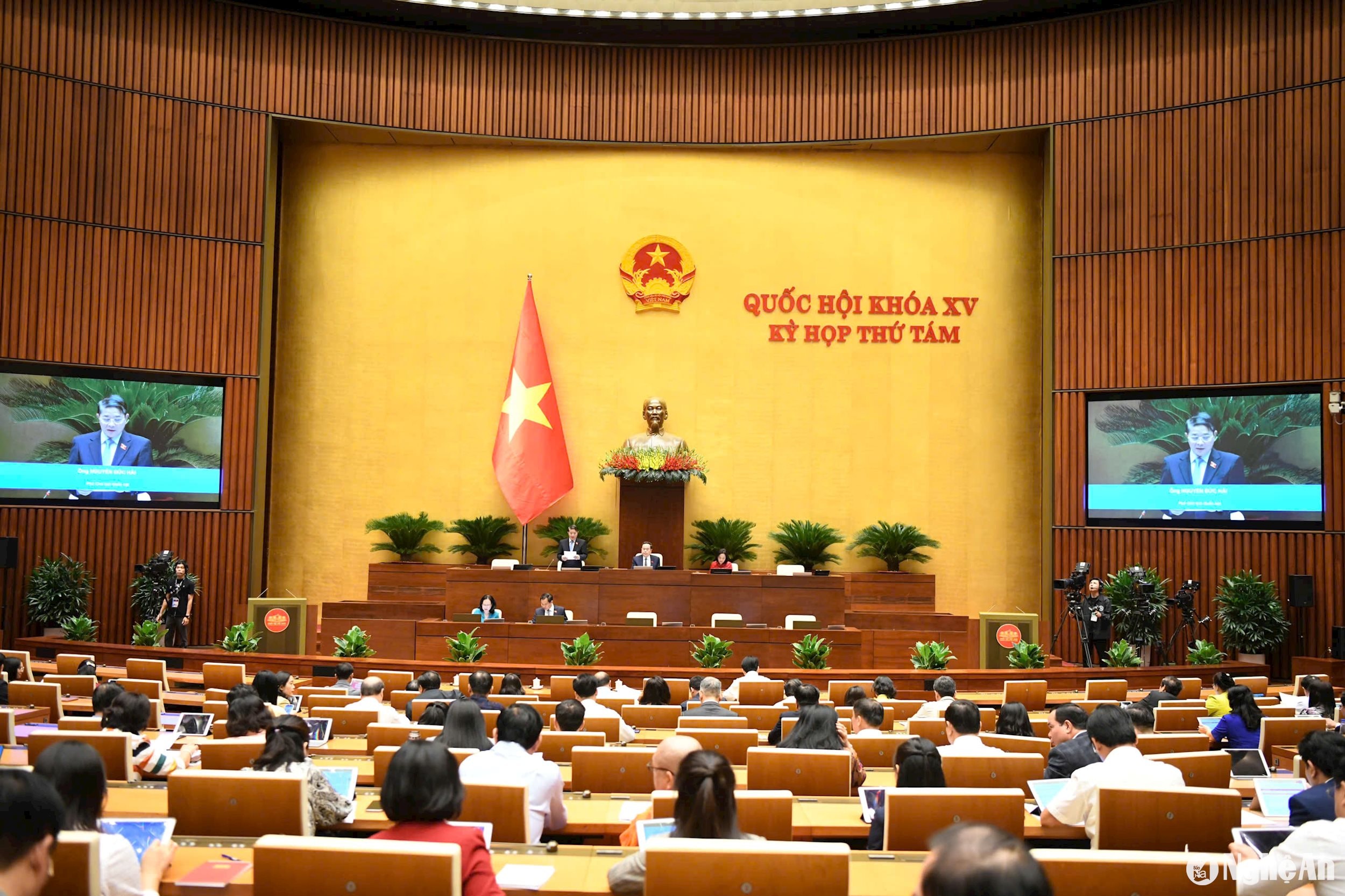
Without timely solutions, it will greatly affect the domestic manufacturing industry.
Speaking at the discussion, delegate Hoang Minh Hieu - Standing member of the National Assembly's Law Committee, delegate of Nghe An delegation raised 2 opinions focusing on issues related to e-commerce.
First of all, delegates expressed their agreement with not providing tax exemption for small-value imported goods via e-commerce platforms.
According to the delegate, with the development of e-commerce, the volume of imported goods with small value is increasing. Statistics in March 2023 show that every day there are about 4 to 5 million small value e-commerce orders transported across the border to Vietnam. On average, each order of this type is worth about 200 thousand VND, so the total value of this type of goods is up to 800 billion VND per day. This number can still increase because e-commerce in our country is in the top 10 fastest growing countries in the world.
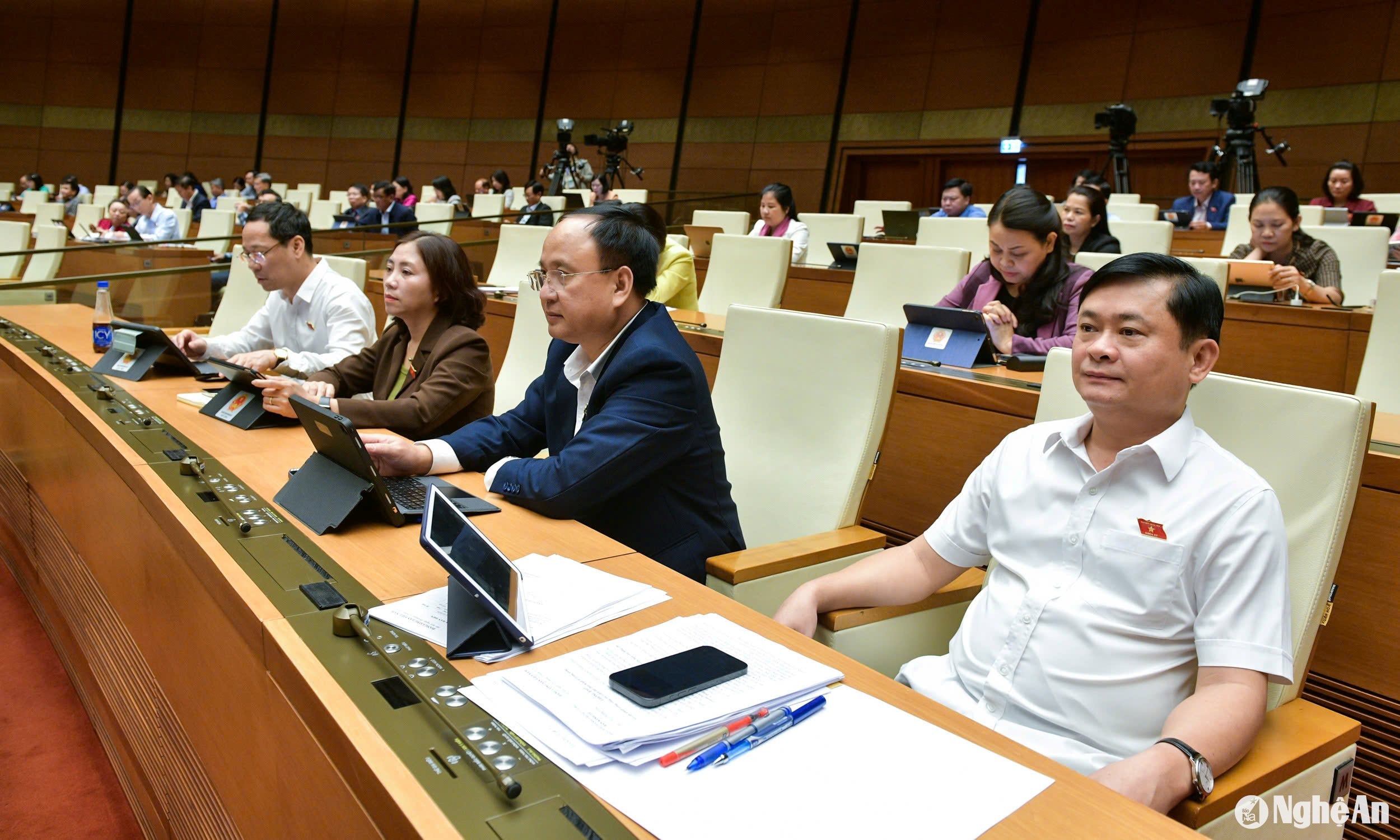
“Therefore, for each order, the value may be small, but the total volume of imported goods in this form has been, is and will continue to be quite large. If tax exemption is granted, it will lead to not collecting a fairly large amount of tax; not to mention that it may lead to the situation of "breaking up" the value of the order to avoid tax,” the delegate analyzed.
Besides, tax exemption for small-value imported goods will directly affect domestic manufacturers and retailers because imported goods will enjoy many advantages.
Not being subject to tax will help imported goods to be cheaper than domestically produced goods, and because there is no tax, customs procedures for this type of goods will also be faster, making them more competitive. If there are no timely solutions, it will greatly affect the domestic manufacturing industry.
The delegate also said that tax exemption for imported goods of small value is mainly to simplify administrative procedures. However, with the application of information technology, customs procedures and tax collection are no longer cumbersome and time-consuming. In addition, many countries in the world have also abolished tax exemption regulations for small value goods imported through e-commerce platforms.
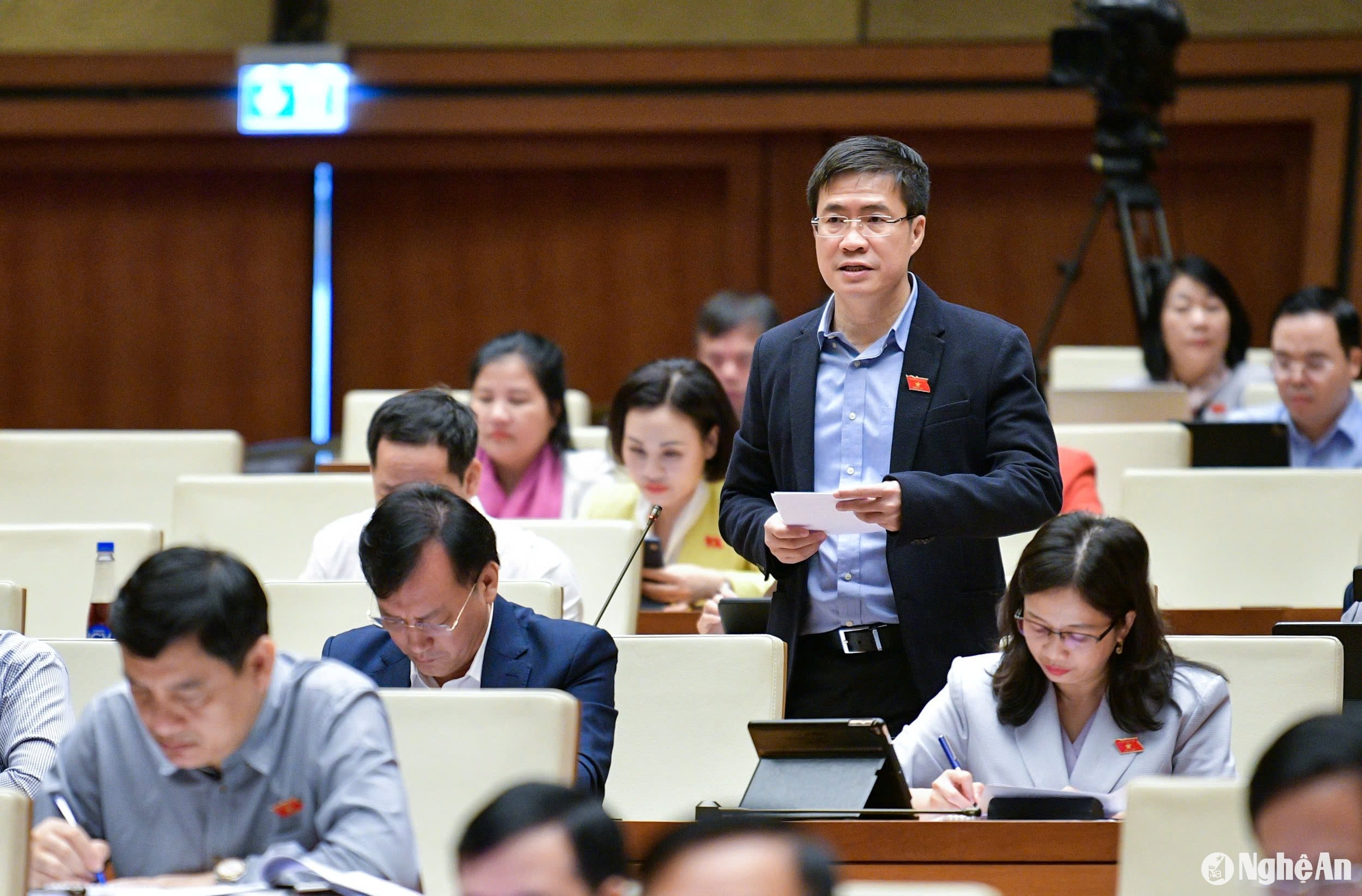
Therefore, delegate Hoang Minh Hieu proposed not to exempt tax on imported goods of small value through e-commerce platforms. Currently, the current Law and the draft Law do not regulate this issue, but tax exemption is being implemented according to the provisions of Decision No. 78/2010 of the Prime Minister. This is a point that is not consistent with the policy prescribed by law, so it is recommended that it be clearly stipulated in the Joint Resolution of this National Assembly session on the need to soon terminate the validity of this Decision.
The draft law also proposes to require e-commerce floor managers and digital platform managers to declare and pay taxes on behalf of households and individuals conducting e-commerce business. Currently, there are opinions that this regulation will put more burden on e-commerce floors, affecting the development of e-commerce in Vietnam.
However, according to delegate Hoang Minh Hieu, the above regulation has certain reasonable points such as: technically, e-commerce floor managers and digital platform managers have the most favorable conditions in holding information and data on transactions through their trading floors. In the long run, it will reduce the costs of the whole society in declaring, paying taxes, and managing taxes, especially when there is a data connection between taxpayers, e-commerce floors and tax authorities...
Therefore, the delegate of Nghe An delegation agreed with the regulation that e-commerce floor managers and digital platform managers must declare and pay taxes on behalf of households and individuals doing e-commerce business.
However, to ensure feasibility, delegates suggested that there should be specific regulations in this law and the Law on Tax Administration on a specific implementation roadmap, ensuring consistency with the implementation of connections and the completion of information systems; supporting e-commerce platforms in fulfilling their responsibilities. In addition, it is necessary to study and clearly stipulate the reduction of liability for e-commerce platforms, especially in cases where they have made all reasonable efforts to comply with tax regulations...
Reasons for proposing tax on fertilizers
In response to concerns raised by the draft Law proposing a 5% value added tax on fertilizers because it would negatively affect the agricultural sector and farmers, delegate Nguyen Van Chi - Vice Chairman of the National Assembly's Finance and Budget Committee, delegate of Nghe An delegation, from the perspective of the review agency, also spoke to clarify this issue from the perspective of policy impact assessment.
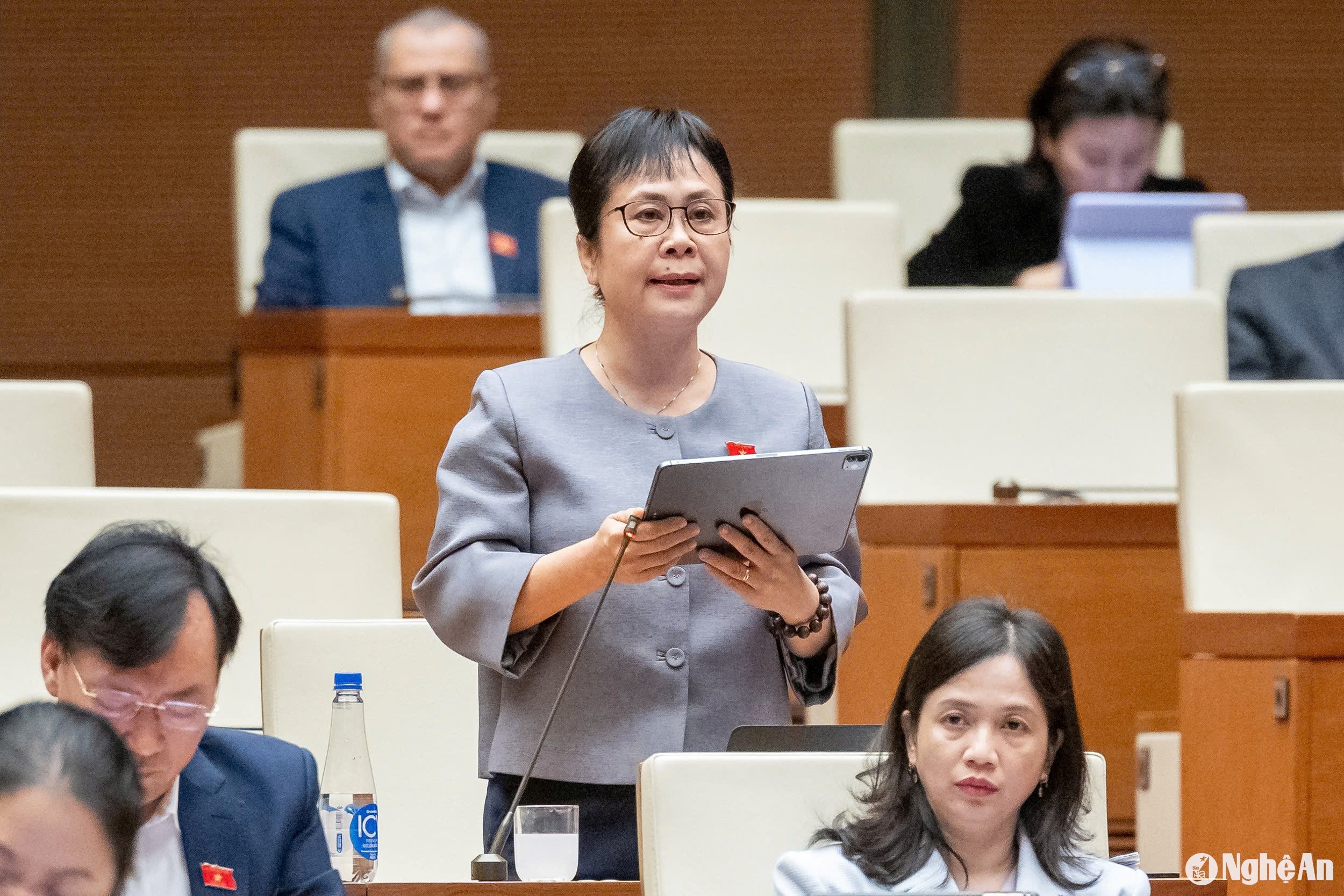
The delegate said that at first glance, when fertilizers are not subject to tax but are subject to 5% tax, the price level will increase by 5%, which is correct. However, fertilizers are very special goods, different from all other processed products currently circulating on the market.
Delegate analysis: Fertilizers are not subject to tax, so domestic manufacturing enterprises are not allowed to deduct input tax and the entire input tax value, including very large values such as investment, must be added to the cost, so all these taxes are added to the cost price, leading to very high costs. However, for foreign enterprises exporting fertilizers to Vietnam, they are still allowed to deduct input tax, so they are much more profitable.
“We have discriminated between domestically produced fertilizers and imported fertilizers by the non-tax mechanism,” the delegate said, adding that domestically produced fertilizers are also discriminated against from all other domestic production industries because other production industries are subject to value-added tax.
Therefore, when the 5% tax on fertilizers is imposed, it does not mean that the price level will increase by 5% because domestic fertilizer manufacturers have room to reduce prices when they are deducted input tax or in many cases will be refunded tax. Therefore, it cannot be said that farmers or the agricultural sector are affected.
“Should we continue the zero-tax policy to discriminate against the domestic fertilizer industry?”, the delegate from Nghe An asked, hoping that the domestic fertilizer industry should be treated equally according to the market mechanism, that is, it should be subject to taxes and have input deductions like other domestic industries, thereby bringing benefits to many parties.
Also in the working session on the morning of October 29, the National Assembly heard the presentation and examination report on the draft Law on Public Investment (amended); Law on amending and supplementing a number of articles of the Law on Securities, the Law on Accounting, the Law on Independent Auditing, the Law on State Budget, the Law on Management and Use of Public Assets, the Law on Tax Administration and the Law on National Reserves.

